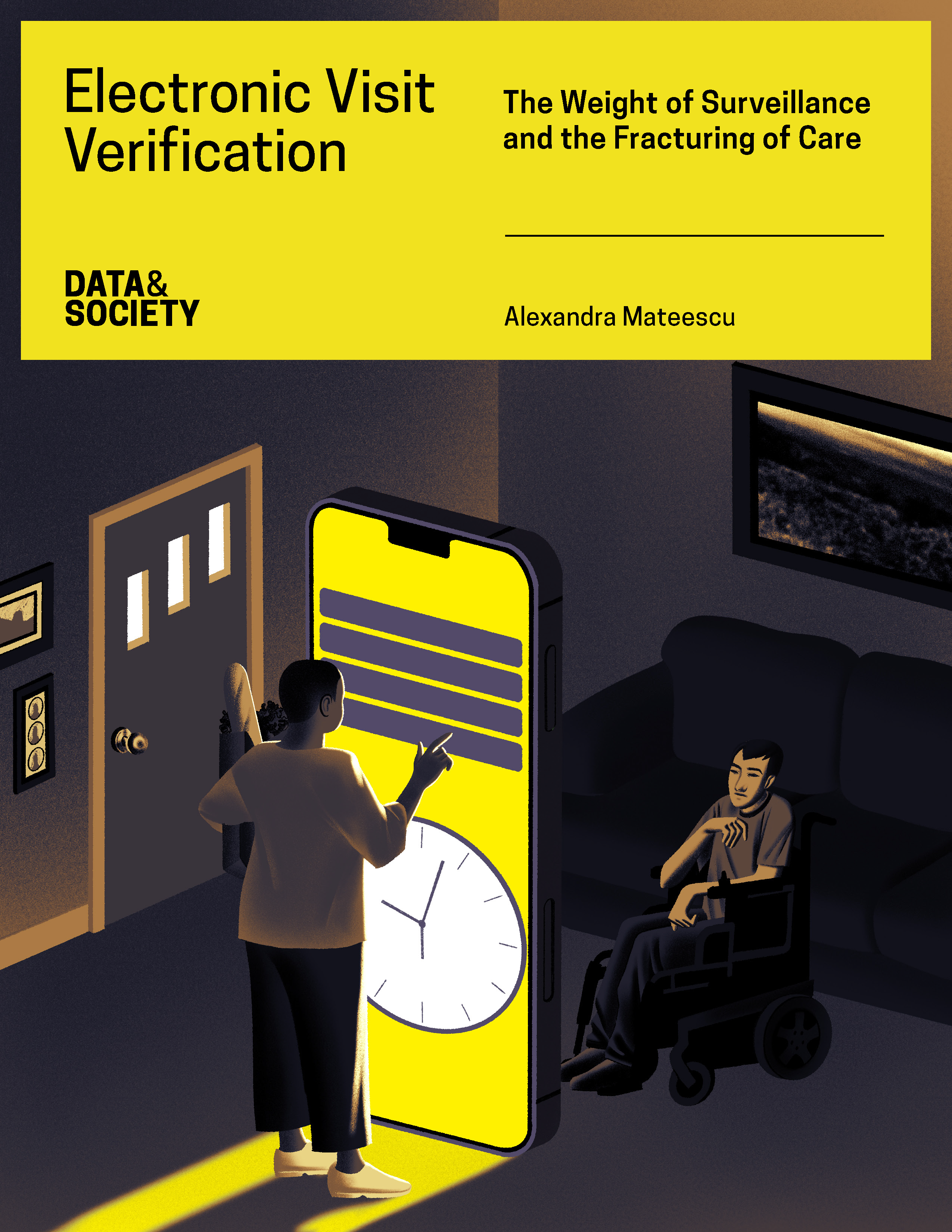In Electronic Visit Verification: The Weight of Surveillance and the Fracturing of Care, Data & Society Researcher Alexandra Mateescu finds that the surveillance of US home care workers through a state-funded mobile app called electronic visit verification (“EVV”) erodes critical support for people with disabilities and older adults while offloading significant, unacknowledged burdens onto both workers and service recipients.
Drawing on interviews with advocates, activists, and twenty workers and service recipients across the country, Mateescu describes how the rollout of EVV systems within Medicaid home- and community-based programs was built on a poor understanding of how services are actually provided.
EVV has contributed to the growing landscape of punitive technologies that target and criminalize both low-wage workers and public benefits recipients. EVV systems also extend legacies of devaluation and distrust of the homecare workforce, which is comprised disproportionately of women of color and immigrants. While EVV systems are a workplace management tool in principle, they operate within a service context where the electronic monitoring of workers also indirectly tracks their clients’ activities and movements. The author finds that monitoring through EVV systems not only evokes privacy concerns, but also creates an atmosphere of ambient criminalization that has had a chilling effect on disabled and older people’s daily lives.
This report from Data & Society’s Labor Futures research track is a fresh testimony about what happens to people’s lives when state programs prioritize promises of efficiency, standardization, and legibility over the lived experiences of those who must intimately live with technologies. When the state procures private technologies that are designed to judge and punish, it evades accountability and creates an algorithmic state that cedes control of how policy is made and enforced for healthcare programs designed to equitably expand access.
For an expanded guide to the policy consequences of EVV, read the report-accompanying Policy Brief by Research Analyst Serena Oduro, Policy Director Brittany Smith, and Mateescu.


